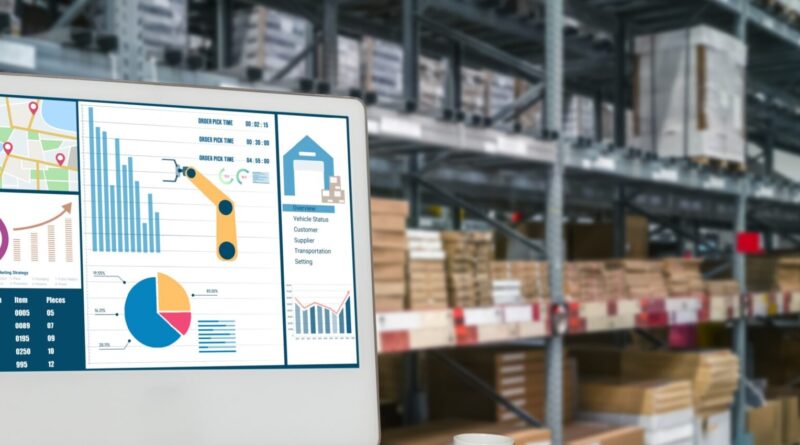Data Analytics for Manufacturing Process Optimization in Mumbai
Mumbai’s industrial sector is rapidly changing as companies use data-driven methods to maintain their competitiveness. In a metropolis renowned for its thriving industrial operations, productivity and efficiency are critical. Data analytics is becoming a cornerstone in helping manufacturing firms optimize their processes, reduce costs, and improve product quality. For those looking to step into this dynamic field, enrolling in a data analyst course or a comprehensive Data Analytics Course is a crucial step toward acquiring the skills necessary to drive these improvements.
By using data analytics, manufacturers in Mumbai can turn raw data into actionable insights. This not only enhances decision-making but also provides a clear roadmap for process optimization, predictive maintenance, and performance management. This article will examine how data analytics is changing Mumbai’s industrial scene and how professionals may gain the necessary skills by enrolling in a data analytics course.
Data Analytics’s Place in Manufacturing
Manufacturing processes generate large amounts of data, including information related to production, quality control, equipment performance, and supply chain logistics. Data analytics helps manufacturers in Mumbai capture, analyze, and interpret this data to improve operational efficiency. Whether it’s optimizing machinery usage, reducing downtime, or improving product quality, data analytics provides the necessary tools to make informed decisions.
For instance, a manufacturing plant in Mumbai producing automotive parts can leverage data analytics to track the performance of individual machines, identify bottlenecks in the production line, and make adjustments in real-time to ensure smooth operations. Enrolling in a Data Analytics Course will provide professionals with the knowledge to extract meaningful insights from raw manufacturing data, helping them address these challenges efficiently.
How Data Analytics Helps in Process Optimization
Process optimization refers to improving manufacturing processes to achieve higher efficiency, reduce waste, and lower operational costs.In a market as competitive as Mumbai, where firms are always seeking methods to improve efficiency, data analytics is essential to accomplishing these goals.
1. Predictive Maintenance
One of the biggest challenges manufacturers face is equipment failure, which leads to costly downtime. Predictive maintenance tracks the performance of equipment and forecasts when a machine is likely to break using data analytics. By using historical data and real-time monitoring, manufacturers can schedule maintenance before issues arise, preventing unexpected breakdowns.
Professionals may learn how to create predictive maintenance models using machine learning algorithms by enrolling in a data analytics course.. In a manufacturing plant in Mumbai, for example, a data analyst could use these models to monitor temperature, pressure, and vibration data from machinery, alerting the maintenance team before a breakdown occurs.
2. Quality Control and Defect Reduction
Manufacturing places a high premium on product quality, and quality control procedures may be greatly improved using data analytics. Manufacturers are able to identify trends that result in faults and make the required corrections by evaluating data from the production line. Data analytics, for instance, can assist in finding differences in material quality, ambient conditions, or equipment failures that may lead to faulty goods.
Manufacturers in Mumbai can use data analytics to track and analyze defects in real-time, enabling faster corrective actions. A Data Analytics Course will cover topics such as statistical process control (SPC) and Six Sigma techniques, equipping professionals with the skills to use data to maintain high-quality standards in manufacturing.
3. Process Efficiency and Waste Reduction
Inefficient processes and waste are major contributors to high operational costs in manufacturing. By leveraging data analytics, manufacturers can identify inefficiencies in their production processes, such as machine downtime, energy usage, or material wastage, and make data-driven decisions to improve these areas.
For instance, a factory in Mumbai producing electronics could use data analytics to optimize energy consumption during different stages of production, reducing overall costs. A data analyst course provides learners with the skills to interpret data, identify inefficiencies, and recommend process improvements that enhance overall production efficiency.
Important Data Analytics Resources for Mumbai Manufacturing
To optimize manufacturing processes, data analysts need to work with advanced tools and technologies. A comprehensive Data Analytics Course typically introduces learners to some of the most effective tools used in the industry. Below are some of the key tools used by data analysts in manufacturing.
1. Python and R for Data Analysis
Python and R are popular programming languages used in data analytics. They offer powerful libraries and tools for data manipulation, statistical analysis, and machine learning. Manufacturing companies in Mumbai use these languages to analyze large datasets, develop predictive models, and automate data-driven processes.
A Data Analytics Course will introduce learners to Python and R, helping them develop the necessary skills to analyze manufacturing data and implement optimization strategies effectively.
2. Power BI and Tableau for Data Visualization
Data visualization tools such as Power BI and Tableau allow data analysts to present their findings in a visually engaging manner. These tools enable manufacturers to track key performance indicators (KPIs), monitor production metrics, and identify trends through interactive dashboards. In a manufacturing environment, being able to visualize real-time data can lead to quicker decision-making and immediate process improvements.
In a Data Analytics Course, professionals learn how to create dashboards that provide actionable insights for manufacturing operations, enabling decision-makers to make informed choices based on data.
3. SQL for Data Management
SQL (Structured Query Language) is essential for managing and querying large datasets in manufacturing environments. Manufacturers in Mumbai use SQL to manage data from multiple sources, such as production databases, quality control systems, and inventory management platforms. With SQL, data analysts can efficiently extract, manipulate, and analyze manufacturing data.
A data analyst course will teach learners how to write SQL queries to retrieve the necessary data for analysis and how to integrate this data into machine learning models and dashboards for process optimization.
The advantages of a Mumbai data analytics course for professionals in the manufacturing industry
For professionals in Mumbai’s manufacturing industry, acquiring data analytics skills through a Data Analytics Course can provide significant career benefits. As businesses depend more and more on data to enhance their operations, the capacity to evaluate and comprehend data has become essential in the manufacturing industry.
1. Enhanced Problem-Solving Skills
A Data Analytics Course provides learners with the knowledge to identify and solve problems using data. In manufacturing, this can range from optimizing supply chains to improving production schedules. By learning how to analyze data effectively, professionals can identify root causes of issues and make evidence-based decisions that lead to long-term improvements.
2. Career Advancement Opportunities
As data analytics becomes more prevalent in the manufacturing industry, professionals who possess these skills are in high demand. A data analyst course equips learners with practical experience in analyzing manufacturing data, making them more valuable assets to their employers. In Mumbai, where the manufacturing sector is a major contributor to the economy, the ability to optimize processes through data analytics can lead to faster career progression and higher earning potential.
3. Improved Decision-Making Capabilities
By enrolling in a Data Analytics Course in Mumbai, professionals will learn how to use data to make informed decisions. In manufacturing, real-time decision-making is crucial for minimizing waste, maximizing efficiency, and reducing downtime. With data analytics skills, professionals can leverage data to provide recommendations that lead to tangible improvements in manufacturing operations.
Conclusion: The Future of Data Analytics in Mumbai’s Manufacturing Industry
The adoption of data analytics is transforming the manufacturing landscape in Mumbai.In an industry that is always changing, data analytics helps businesses stay competitive by streamlining operations, enhancing product quality, and cutting expenses. The ideal option for professionals to improve their abilities is to enrol in a data analytics course and master the methods and tools required for process improvement.
A data analyst education will provide you with a considerable advantage whether you’re trying to start your career or grow in the manufacturing business. The future of manufacturing in Mumbai will be significantly shaped by experts in data analytics, as companies continue to embrace data-driven initiatives.
Business Name: ExcelR- Data Science, Data Analytics, Business Analyst Course Training Mumbai
Address: Unit no. 302, 03rd Floor, Ashok Premises, Old Nagardas Rd, Nicolas Wadi Rd, Mogra Village, Gundavali Gaothan, Andheri E, Mumbai, Maharashtra 400069, Phone: 09108238354, Email: enquiry@excelr.com.




